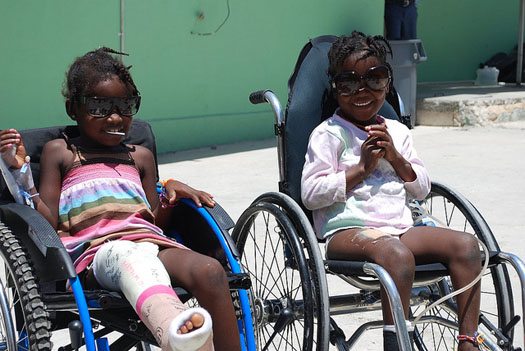
June 27, 2017; Miami Herald
If you visit a hospital in Haiti, you see first the people waiting outside. Many of those, having traveled for miles on foot, had slept there the night before—maybe two nights before—waiting for care. This might lead you to believe that there aren’t enough hospitals in Haiti, but a new study by the World Bank suggests the problem isn’t a lack of hospitals, but instead a dearth of primary care as well as anything close to the needed public investment in health care.
According to the report, the annual per capita public health spending in Haiti is $13, compared with $781 in nearby Cuba and $180 in the Dominican Republic, Haiti’s neighbor on the island of Hispaniola. Public investment in health care has plummeted from 16.6 percent of the total Haitian government budget in 2004—under the administration of former President Jean-Bertrand Aristide who was overthrown that year—to 4.4 percent in the current budget.
The World Bank is calling for not just an increase in dollars, but a reallocation. It would like to see more emphasis on primary clinics and preventative care and proportionally less money spent on hospitals.
“We have a lot of hospitals that do not necessarily provide care at the level they are supposed to,” the study’s lead author Eleonora Cavagnero said in an interview with the Miami Herald. A health economist for Haiti at the World Bank, Cavagnero is also calling for a moratorium on new hospital construction. “A lot of the things that Haitians suffer from could be treated at the primary health care levels in a more cost-effective way.”
The World Bank’s recommendations bump up not just against the overwhelming poverty (where more than half of people live on less than $2 a day) and political instability in Haiti, but also a donor culture that prefers photogenic brick-and-mortar projects like new hospitals and schools. Donors unfortunately tend to lose enthusiasm when it comes to staffing and maintaining the programs meant to go in the shiny new buildings.
Sign up for our free newsletters
Subscribe to NPQ's newsletters to have our top stories delivered directly to your inbox.
By signing up, you agree to our privacy policy and terms of use, and to receive messages from NPQ and our partners.
This donor culture is certainly not unique to Haiti but is especially pervasive in a land nicknamed the “Republic of NGOs.” (And it’s never said, “Lucky Haiti! It’s a republic of NGOs!” Look, for example, at NPQ’s previous coverage of the American Red Cross in Haiti.)
Haiti’s poverty and political instability leave it especially vulnerable to disasters both manmade and natural. The World Bank study found that hospitals are often built in reaction to disasters, like Hurricane Matthew last fall and the massive earthquake in January 2010, “without planning for how running costs will be borne after the initial emergency has passed.”
And, sometimes, the initial emergency doesn’t really pass. In October 2010, negligent waste disposal on the part of United Nations peacekeeping troops introduced the deadly cholera bacterium into Haiti’s main river system. From thence, it raced through the population, who had no immunity because cholera was new to the country. At last count, nearly 10,000 people have died and almost 800,000 have been sickened in the ongoing epidemic according to official statistics. (The CDC observes that the real numbers are likely much higher.)
The UN has made a (long-delayed) apology and promises of restitution, but mostly it has left the Haitian people with bills and long-term side effects. (This in a country where, according to the World Bank study, “almost one quarter of households reported not consulting a provider when sick…among those, 49 percent could not afford care.”)
The healthcare crisis in Haiti is bound to get worse, said Dr. Ronald LaRoche, a primary care advocate who operates private hospitals in Haiti, in an interview with the Miami Herald. He cited a conflux of “the shrinking of international assistance, the lack of income coming from the government side, the inflation rate, the increase of the population and the emergence of new hazards like cholera and Zika, and the reappearance of old ones like tuberculosis.”
LaRoche told the Miami Herald he believes the answer for Haiti is a system of universal coverage where people who can afford to pay have insurance and those who can’t are covered by the government or private donors.—Nancy Young












